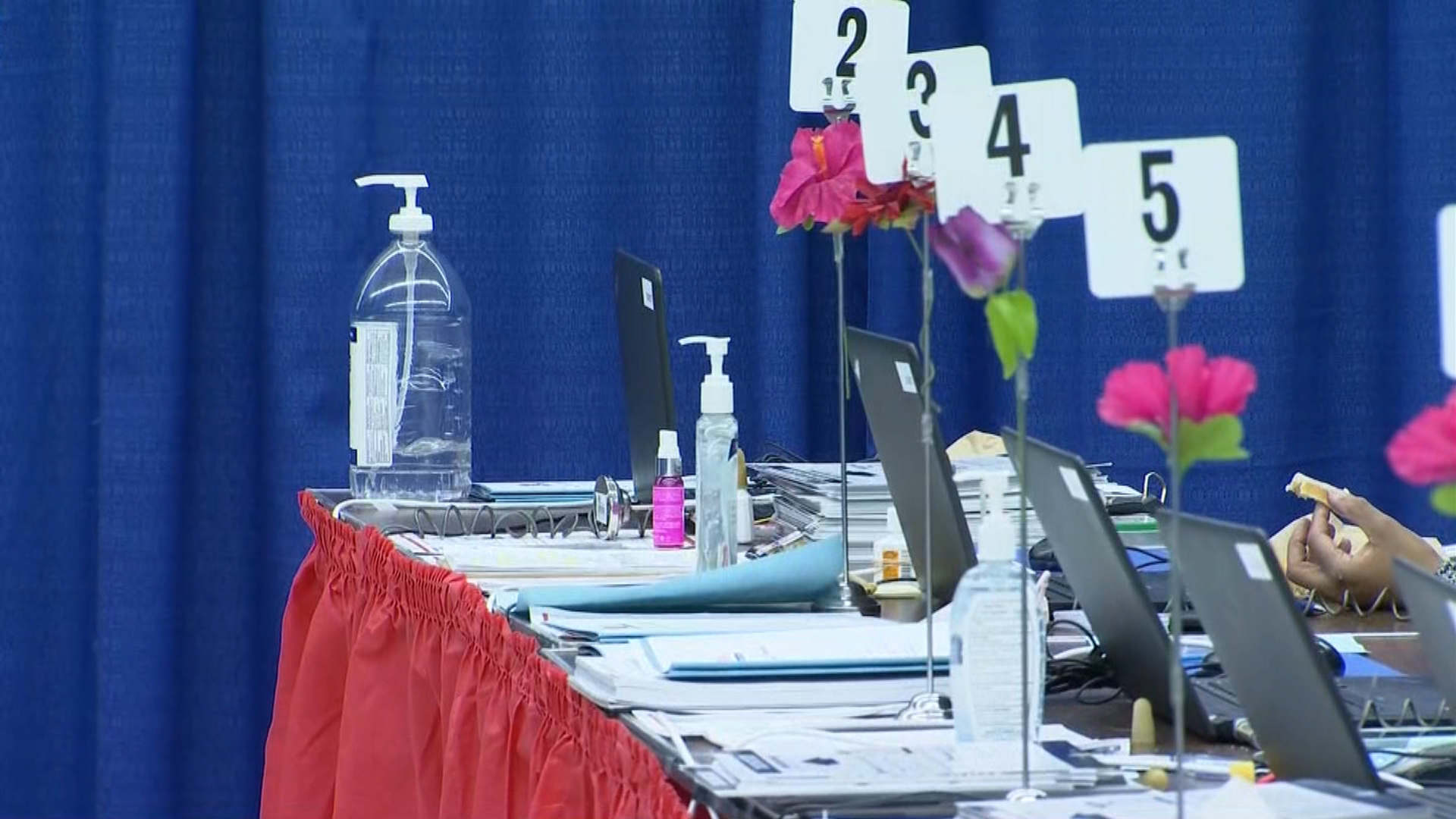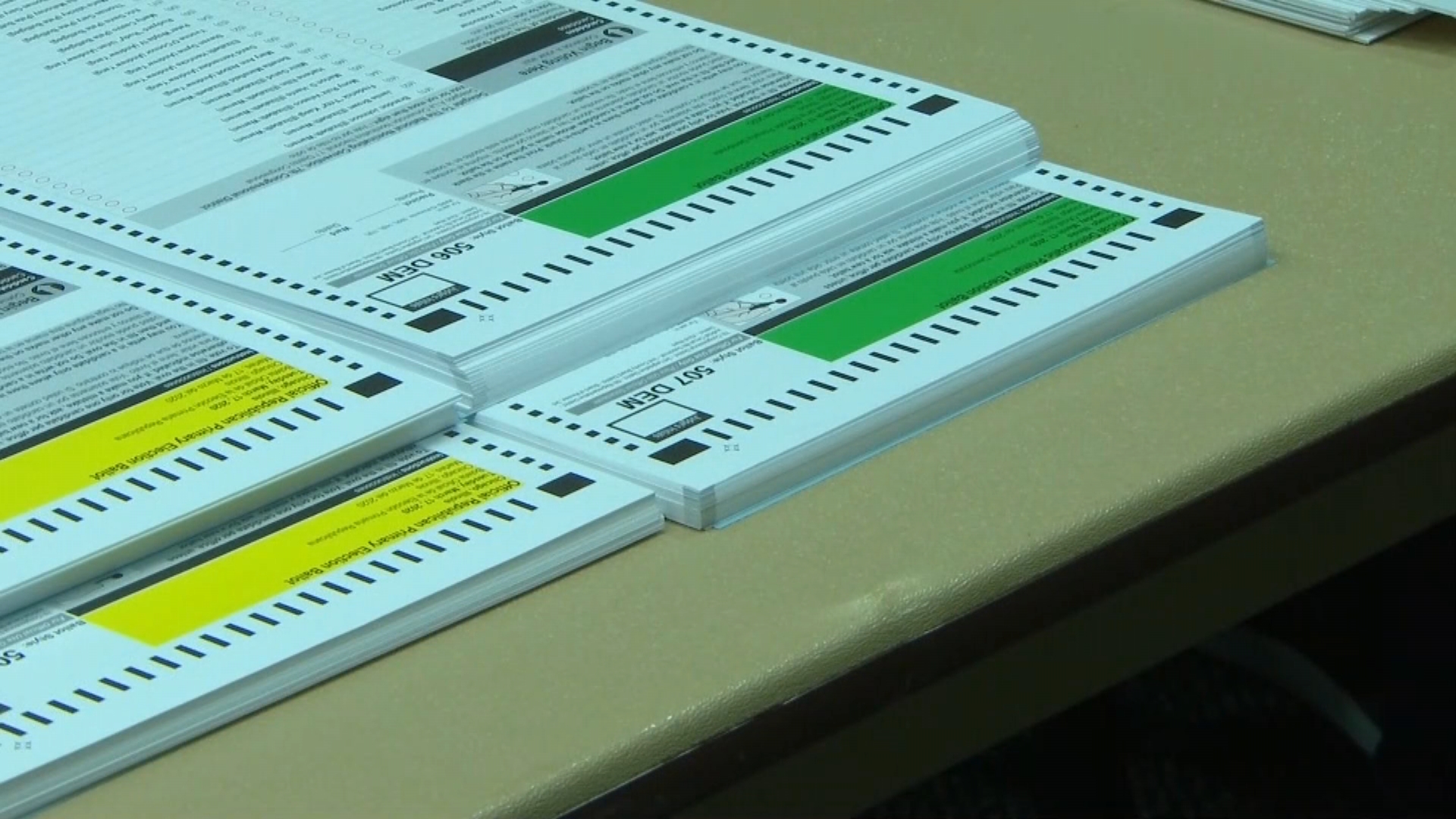Chicago Election officials say they wanted to move to a mail-in only model and cancel in person voting in Tuesday’s Illinois Primary, but were rejected by the governor’s office.
Chicago Board of Elections spokesman Jim Allen said the call was made to Springfield within hours of the Centers for Disease Control and Prevention classifying the coronavirus outbreak as a pandemic.
“This was a snowball we could all see coming down the hill,” Allen said.
Now the board is coping with some of the lowest voter turnout numbers in recent memory. Only 10,500 people had voted in polling places one hour after polls opened. Another 14,400 cast their ballots in the 7 a.m. hour.
The governor's office denied the allegations, saying the governor cannot unilaterally cancel or delay an election.
"Elections are the cornerstone of our democracy and we could not risk confusion and disenfranchisement in the courts. No one is saying this is a perfect solution. We have no perfect solutions at the moment. We only have least bad solutions," his office said in a statement.
Pritzker said the administration offered resources to help with the shortage in judges, but said "the board wouldn't reduce red tape."
"So instead of accepting help or offering any solutions of their own, the Chicago Board of Elections decided to wait until Election Day to get on a call with press and make politically charged accusations," the statement read.
Allen argued the board anticipated the fear that the virus has caused among voters and poll workers, but was told that the election was to be held anyway.
A spokesperson for the Governor's office says it offered to provide the National Guard to help staff the election and we also worked to recruit volunteers. "2000 young people from the Mikva Challenge were turned away from volunteering because the board wouldn’t reduce red tape," Jordan Abudayyeh said. " The Chicago Board of Elections should find a way to do their job."
Since then, approximately 50 of the city’s 2,069 precincts have had to move because of concern from the buildings where they were being staged, many of them senior centers. That has created its own problems, Allen said, because trucking companies had to retrieve election supply carriers and couldn’t get into all the new precincts. He says they are still making deliveries this morning.
There have also been problems with sufficient election judges and election coordinators. Judges can be sworn in on the spot, but coordinators, who are responsible for troubleshooting equipment issues, have been harder to replace. As of 10 a.m., an estimated 90% of precincts were up and running.
On Twitter, some poll workers have complained about a lack of hand sanitizer and cleaning wipes at their polling places. Allen is urging those workers to do the best they can, saying that the vast majority of votes today will be cast with paper ballots and not screens that need to be wiped down.
“We did the best we could when we stockpiled,” Allen said. “We had no idea when we made these purchasing moves that there would be a global pandemic.”



